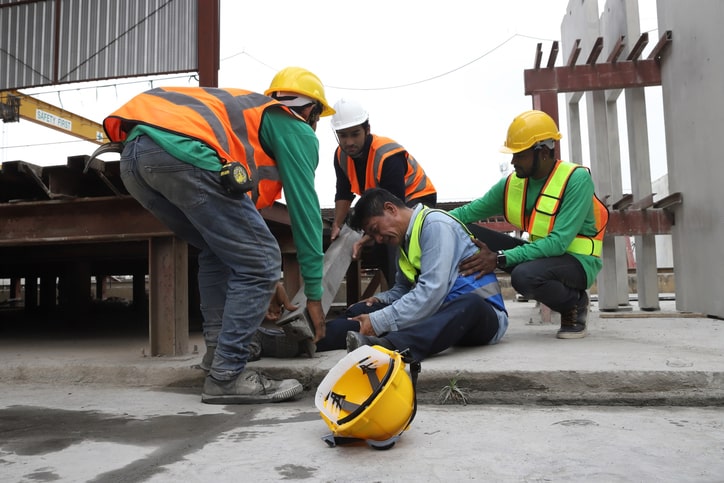Get Our Insider to Property Damage Brochure

How to Prove Negligence in North Carolina Construction Accident Cases
January 21, 2025Construction sites are inherently dangerous environments, with heavy machinery, elevated work areas, and constant activity creating a high risk of accidents. When accidents occur, victims may face severe injuries, mounting medical bills, and lost wages. Proving negligence is a critical step in pursuing compensation for those injured on or near a construction site in North Carolina.
At Dewey, Ramsay & Hunt, our Charlotte personal injury lawyers are here to guide you through the process of holding responsible parties accountable.
Understanding Negligence in North Carolina Construction Accidents
Negligence occurs when a party’s failure to exercise reasonable care harms another. In construction accidents, negligence can involve actions or omissions by contractors, employers, property owners, equipment manufacturers, or other entities.
Proving negligence requires establishing four key elements:
- Duty of Care: The at-fault party owed a legal duty to the victim.
- Breach of Duty: The at-fault party failed to meet their duty of care through an act or omission.
- Causation: The breach directly caused the victim’s injury.
- Damages: The victim suffered measurable harm, such as medical expenses or lost income.
Common Forms of Negligence in Construction Accidents
Construction accidents often stem from preventable hazards.
Some common examples of negligence include:
- Failure to Follow Safety Regulations: Construction sites must adhere to Occupational Safety and Health Administration (OSHA) standards. Violations like lack of fall protection or improper training can lead to accidents.
- Unsafe Equipment: Defective tools, machinery, or scaffolding can pose serious risks if not properly maintained or inspected.
- Poor Site Management: Inadequate supervision, cluttered work areas, or improper material handling can create hazardous conditions.
- Negligent Hiring Practices: Employers who fail to vet employees or contractors for necessary skills and certifications can be held liable for accidents caused by unqualified workers.
Steps to Prove Negligence in North Carolina Construction Accident Cases
Proving negligence in a construction accident case involves gathering evidence to support each of the four elements of negligence.
Here are the key steps:
- Document the Scene: Photographs, videos, and detailed notes of the accident site can capture unsafe conditions and serve as crucial evidence.
- Obtain Witness Statements: Testimony from coworkers, bystanders, or other witnesses can corroborate your account of the incident.
- Review Safety Records: OSHA reports, safety inspection logs, and site management records may reveal violations or lapses in safety protocols.
- Gather Medical Evidence: Medical records and expert testimony can establish the extent of your injuries and link them to the accident.
- Consult Experts: Construction and safety experts can help demonstrate how the at-fault party’s actions deviated from industry standards.
- Work with an Experienced Attorney: Navigating the legal complexities of a construction accident case requires skilled representation. An attorney can help build a strong case, negotiate with insurers, or pursue litigation if necessary.
Why Choose Dewey, Ramsay & Hunt?
At Dewey, Ramsay & Hunt, P.A, we understand the devastating impact construction accidents can have on victims and their families. Our experienced Charlotte personal injury attorneys are committed to securing the justice and compensation you deserve.
We’ll thoroughly investigate your case, identify liable parties, and fight tirelessly on your behalf, starting with a free consultation. Call 704-377-3737 or contact us online today. We provide unique legal services tailored to each client’s needs and do not get paid unless you do.
Your Injury, Our Fight. How can we help you take a stand?
Because every case is different, the description of awards and issues previously managed by our law firm does not guarantee a similar outcome in current or future cases.

